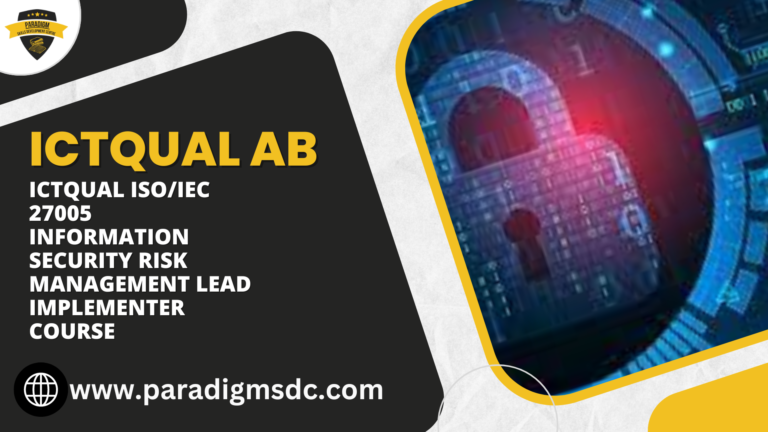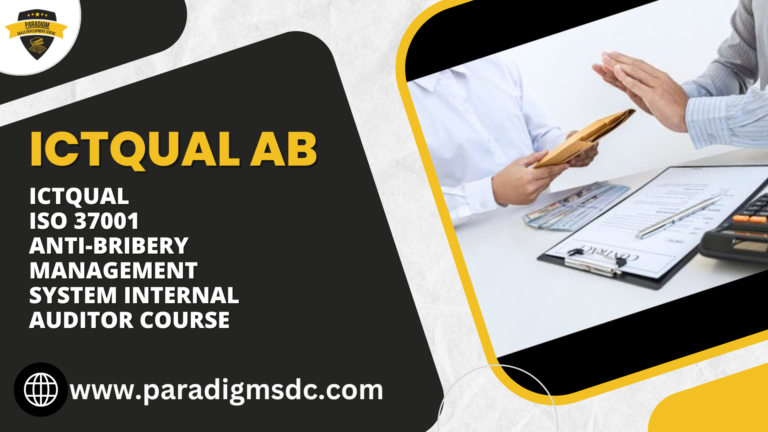Course Introduction
The ICTQual Diploma in Building Management System (BMS) is designed to provide comprehensive training in the integration and management of building systems. With the increasing complexity of modern buildings, the need for skilled professionals who can manage and optimize building operations has never been greater. This diploma program equips students with the knowledge and skills necessary to oversee and maintain building management systems effectively, ensuring optimal performance, energy efficiency, and occupant comfort.
Course Overview
This diploma covers all aspects of Building Management Systems, from the fundamentals to advanced topics. Students will learn how to design, implement, and manage BMS technologies, including HVAC, lighting, security, and other critical building systems. The course combines theoretical knowledge with practical applications, preparing graduates for real-world challenges in the building management industry.
Course Study Units
- Introduction to Building Management Systems
- Building Systems Integration
- Building Energy Management
- BMS Design and Installation
- Building Automation Programming
- BMS Operation and Maintenance
- Building Automation for Sustainability
- Regulatory Compliance and Standards
- Project Management and Documentation
Learning Outcomes
By the end of the ICTQual Diploma in Building Management System, participants will be able to:
- Introduction to Building Management Systems:
- Understand the fundamental principles, components, and functionalities of building management systems (BMS).
- Identify the role of BMS in optimizing building performance, energy efficiency, and occupant comfort.
- Explain the importance of integrating various building systems within a BMS framework for centralized control and automation.
- Building Systems Integration:
- Demonstrate proficiency in integrating diverse building systems, including HVAC, lighting, security, fire safety, and energy management, within a BMS platform.
- Understand interoperability standards and protocols for seamless communication between different systems.
- Identify opportunities for optimizing building operations and energy efficiency through system integration.
- Building Energy Management:
- Gain knowledge of energy management principles, strategies, and technologies applicable to buildings.
- Analyze building energy consumption patterns and identify opportunities for energy savings and efficiency improvements.
- Utilize BMS functionalities to monitor, control, and optimize energy usage, including load scheduling, demand response, and renewable energy integration.
- BMS Design and Installation:
- Develop proficiency in designing BMS solutions tailored to the specific requirements of building projects.
- Understand best practices and standards for BMS installation, including system layout, equipment selection, and wiring diagrams.
- Ensure compliance with regulatory requirements and industry standards throughout the design and installation process.
- Building Automation Programming:
- Acquire programming skills and techniques necessary for configuring and customizing BMS functionalities.
- Utilize programming languages and tools for implementing control algorithms, logic sequences, and user interfaces.
- Develop hands-on experience in programming BMS software platforms to meet project requirements.
- BMS Operation and Maintenance:
- Gain proficiency in operating and maintaining BMS systems to ensure optimal performance and reliability.
- Develop troubleshooting skills to diagnose and resolve common issues related to BMS operation, communication, and hardware/software malfunctions.
- Implement preventive maintenance measures and routine inspections to prolong the lifespan of BMS components and systems.
- Building Automation for Sustainability:
- Understand the role of BMS in promoting sustainability and environmental stewardship within buildings.
- Identify opportunities for optimizing building performance, energy efficiency, and indoor environmental quality through BMS applications.
- Implement sustainable practices and strategies using BMS functionalities, including energy monitoring, demand response, and occupant comfort optimization.
- Regulatory Compliance and Standards:
- Gain knowledge of regulatory requirements, codes, and standards governing BMS design, installation, and operation.
- Ensure compliance with relevant regulations and industry standards, such as ASHRAE, NFPA, and LEED, to meet legal and safety requirements.
- Implement documentation and reporting practices to demonstrate compliance with regulatory agencies and stakeholders.
- Project Management and Documentation:
- Develop project management skills essential for planning, executing, and documenting BMS projects.
- Understand project lifecycle phases, including planning, scheduling, budgeting, and risk management.
- Create comprehensive project documentation, including specifications, drawings, commissioning reports, and operation manuals, to ensure project success and stakeholder satisfaction.
Course Benefits
- Comprehensive Training: Gain in-depth knowledge and practical skills in BMS technologies and management.
- Industry Recognition: Earn a diploma recognized by employers and industry professionals.
- Career Opportunities: Enhance your job prospects and career advancement potential in the building management field.
- Practical Experience: Engage in hands-on training with real-world scenarios and case studies.
- Energy Efficiency Expertise: Learn to optimize energy use and reduce operational costs through effective BMS management.
Who is This Course For?
The ICTQual Diploma in Building Management System is ideal for:
- Aspiring building management professionals seeking formal training and certification.
- Current building managers looking to enhance their skills and knowledge in BMS.
- Facility managers and engineers responsible for building operations and maintenance.
- Energy managers and sustainability professionals aiming to optimize building performance.
- Individuals interested in pursuing a career in building management and smart building technologies.
Future Progression
Upon completion of the ICTQual Diploma in Building Management System, graduates can pursue various career paths, including:
- Building Manager: Oversee the operations and maintenance of building systems.
- Facility Manager: Manage facilities with a focus on optimizing performance and efficiency.
- Energy Manager: Specialize in energy management and sustainability initiatives within buildings.
- BMS Specialist: Provide expertise in the design, implementation, and management of BMS technologies.
- Smart Building Consultant: Advise on the integration and optimization of smart building technologies.
Graduates may also choose to further their education by enrolling in advanced courses or certifications related to building management, energy management, or smart building technologies.
The ICTQual Diploma in Building Management System provides a solid foundation for individuals seeking to excel in the field of building management. With comprehensive training and practical experience, this course prepares you for a successful career in managing and optimizing building systems for enhanced performance and efficiency.







